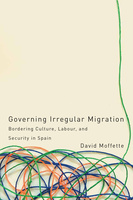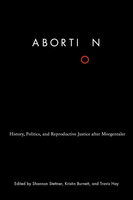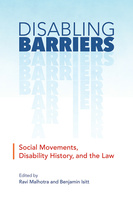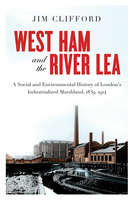Reconsidering Radical Feminism
Affect and the Politics of Heterosexuality
Reconsidering Radical Feminism investigates the legacy of feminist debates about the politics of heterosexuality, examining how we become invested in arguments that position us as feminists – and as gendered subjects.
One Hundred Years of Struggle
The History of Women and the Vote in Canada
Acclaimed historian Joan Sangster celebrates the 100th anniversary of Canadian women getting the federal vote with a look at the real struggles women faced, depending on their race, class, and location in the nation, in their fight for equality.
Governing Irregular Migration
Bordering Culture, Labour, and Security in Spain
This thorough analysis of immigration governance in Spain explores the dynamics of inclusion and exclusion at play at one of Europe’s southern borders.
Disabling Barriers
Social Movements, Disability History, and the Law
In Disabling Barriers, legal scholars, historians, and disability-rights activists encourage us to rethink our understanding of both the systemic barriers disabled people face and the capacity of disabled people to effect positive societal change.
Engagement Organizing
The Old Art and New Science of Winning Campaigns
At a time of heightened concern about what our future holds and how we can shape it, Engagement Organizing shows how combining old-school people power with new digital tools and data can win campaigns today.
Mothers and Others
The Role of Parenthood in Politics
The first major comparative analysis of the role of parenthood in politics, this book raises important questions about the intersection of gender, parental status, and political life.
West Ham and the River Lea
A Social and Environmental History of London’s Industrialized Marshland, 1839–1914
This original account of industrial London’s expansion into West Ham’s suburban marshlands highlights how pollution, poverty, and water shortages fuelled social democracy in Greater London.
The Deindustrialized World
Confronting Ruination in Postindustrial Places
The Deindustrialized World opens a window on the experiences of those living at ground zero of deindustrialization and examines confrontations with the ruination of people and places on a global scale.










